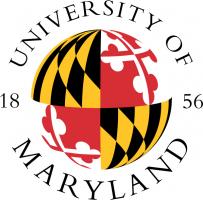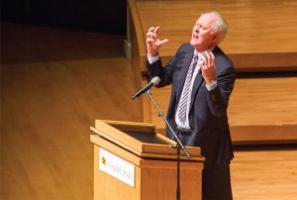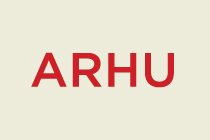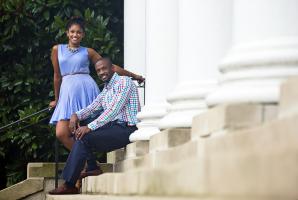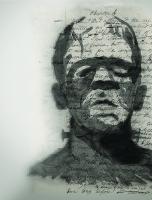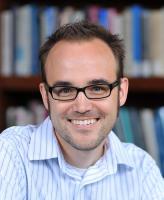MESSAGE FROM THE DEAN:
Dear Colleagues:
With great excitement we share with you that by September of 2014, the DeVos Institute of Arts Management will relocate to the University of Maryland, College Park, joining the College of Arts and Humanities’ robust portfolio. The institute will continue its work in collaboration with the Clarice Smith Performing Arts Center, one of the nation's leading arts incubators. Joining the ranks of renowned arts partners the School of Music; School of Theatre, Dance, and Performance Studies; the Michelle Smith Performing Arts Library; and the Visiting Artist Program, the institute will continue to provide training to arts administrators and arts management consultation to cultural organizations, governments, and foundations nationally and internationally. There has been considerable interest in the college to develop programs in arts management, and by adding the expertise of this new partner, we are even better positioned to shape the future of the arts worldwide. Through training, mentoring and scholarship of arts students, leaders and entrepreneurs we will be at the forefront of arts education. Over the next several months we will be discussing the details of this relationship with DeVos as well as with faculty and staff in the center and the college. Please stay tuned for more details. In the meantime, you can learn more about our new partner by visiting the DeVos Institute of Arts Management online: http://www.kennedy-center.org/education/artsmanagement/.
Sincerely,
Bonnie Thornton Dill, Dean, College of Arts and Humanities
Martin Wollesen, Executive Director, Clarice Smith Performing Arts Center
COLLEGE PARK, Md. –The DeVos Institute of Arts Management at the Kennedy Center, a premier organization for training and supporting arts leadership, is moving to the University of Maryland. Michael M. Kaiser, a foremost expert in arts management, together with the current director Brett Egan, will lead the DeVos Institute of Arts Management at the University of Maryland when the change becomes effective September 1, 2014.
Founded by Kaiser in 2001 after he became president of the John F. Kennedy Center for the Performing Arts, the DeVos Institute trains, supports and empowers arts managers and their boards. It has advised thousands of individuals, organizations, governments and foundations throughout the United States and in over 70 countries on six continents.
"Michael Kaiser and the DeVos Institute are the international gold standard in arts management education and consulting. To have them on our campus is an extraordinary boost to excellence and innovation in the arts at the University of Maryland," says its president Wallace Loh.
The DeVos Institute's offices, staff, and leadership team will relocate from the Kennedy Center to the university campus. At UMD, the institute will continue its important role in the arts community while working with the university on strategic initiatives in the arts.
"The Kennedy Center has been a remarkable home to the DeVos Institute and has allowed Brett Egan and me to build a sizeable education and consulting practice," says Kaiser. "I thank David Rubenstein and the Board of Trustees of the Kennedy Center for their unwavering support and Wallace Loh for his gracious invitation to join the University of Maryland. I look forward to increasing the institute's scope and record of service in our new home."
The DeVos Institute offers a variety of programs that provide practical training at all stages of professional development in the field, including fundraising, artistic planning, strategic planning and board development. Signature offerings include fellowships designed to prepare mid-career arts managers for executive positions and a robust board training program.
"We are very fortunate that one of the world's most well-known and well-respected arts administrators is bringing his 30 years of arts management experience and the DeVos Institute to the University of Maryland," says Mary Ann Rankin, UMD's senior vice president and provost. "This is an extraordinary opportunity to expand arts programming and management training and to raise the profile of the arts at the University of Maryland to the highest levels."
Kaiser's extensive global leadership experience in arts management includes serving successfully as chief executive of the Royal Opera House in London, the American Ballet Theatre, and the Alvin Ailey American Dance Theater before taking his position at the Kennedy Center. Besides founding and leading the institute, Kaiser played a key role in expanding its educational and artistic programming and oversaw major renovations to the Kennedy Center.
"Michael established the arts management training program when he arrived at the Kennedy Center in 2001 and he has nurtured it into a world-class institute," says Kennedy Center Chairman David M. Rubenstein. "We wish Michael the greatest of success as he guides his life's work to its full potential at the University of Maryland where the institute can benefit from the resources of a major educational institution. We look forward to future collaborations between the institute and the Center."
"Training and preparing arts managers to effectively lead artists and arts organizations is a powerful way to leverage creative talents for the benefit and enjoyment of all of us," state Betsy and Dick DeVos. "We're glad the institute's mission will continue to thrive at the University of Maryland as Michael and Brett guide the DeVos Institute to become the world's leading institution devoted to training arts managers."
Additional information about the DeVos Institute is available at www.DeVosInstitute.org.
About the University of Maryland
The University of Maryland is the state's flagship university and one of the nation's preeminent public research universities. A global leader in research, entrepreneurship and innovation, the university is home to more than 37,000 students, 9,000 faculty and staff, and 250 academic programs. Its faculty includes three Nobel laureates, two Pulitzer Prize winners, 49 members of the national academies and scores of Fulbright scholars. The institution has a $1.7 billion operating budget, secures $500 million annually in external research funding and recently completed a $1 billion dollar fundraising campaign.
###


